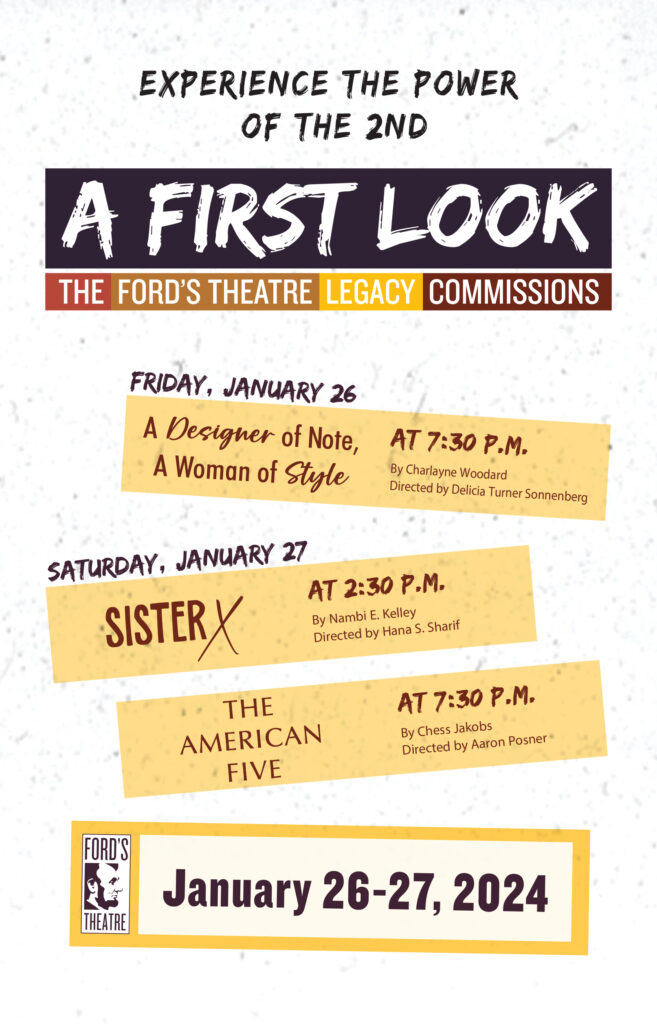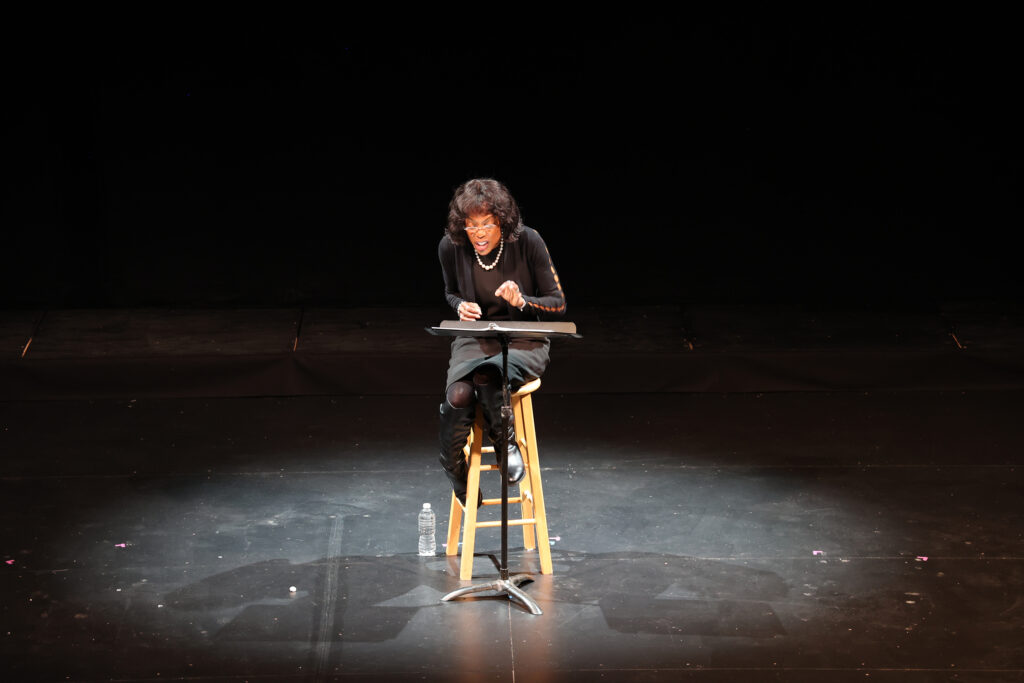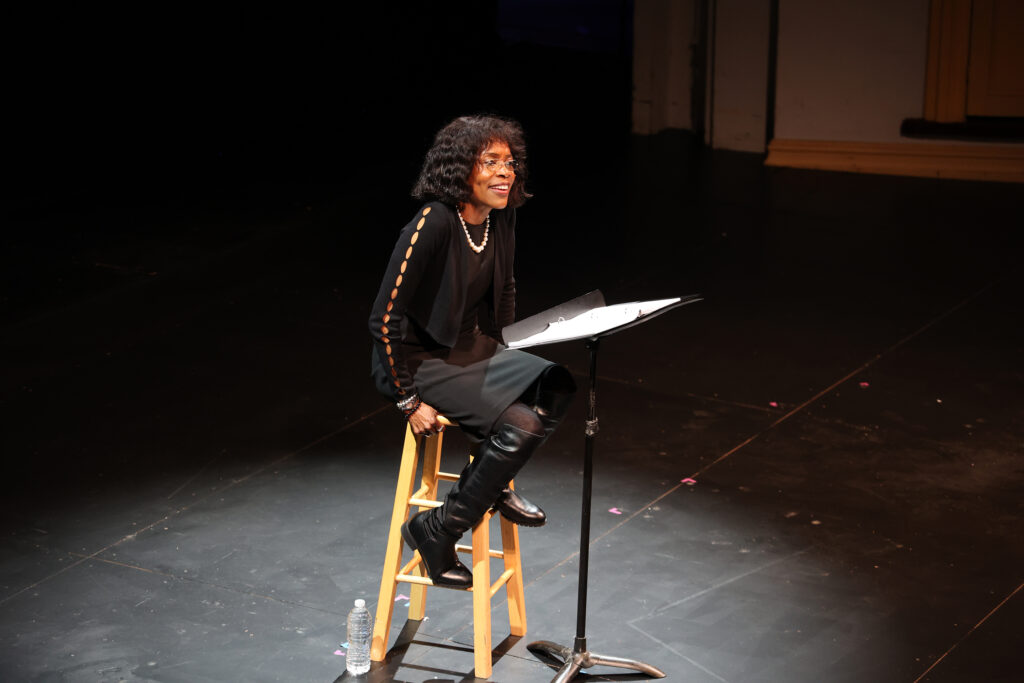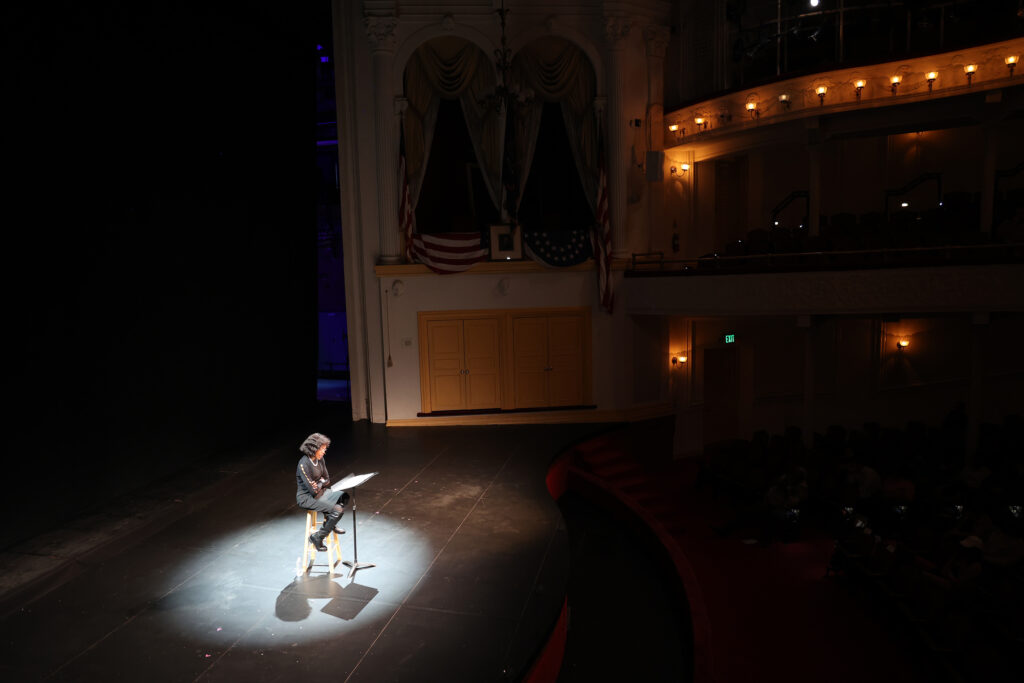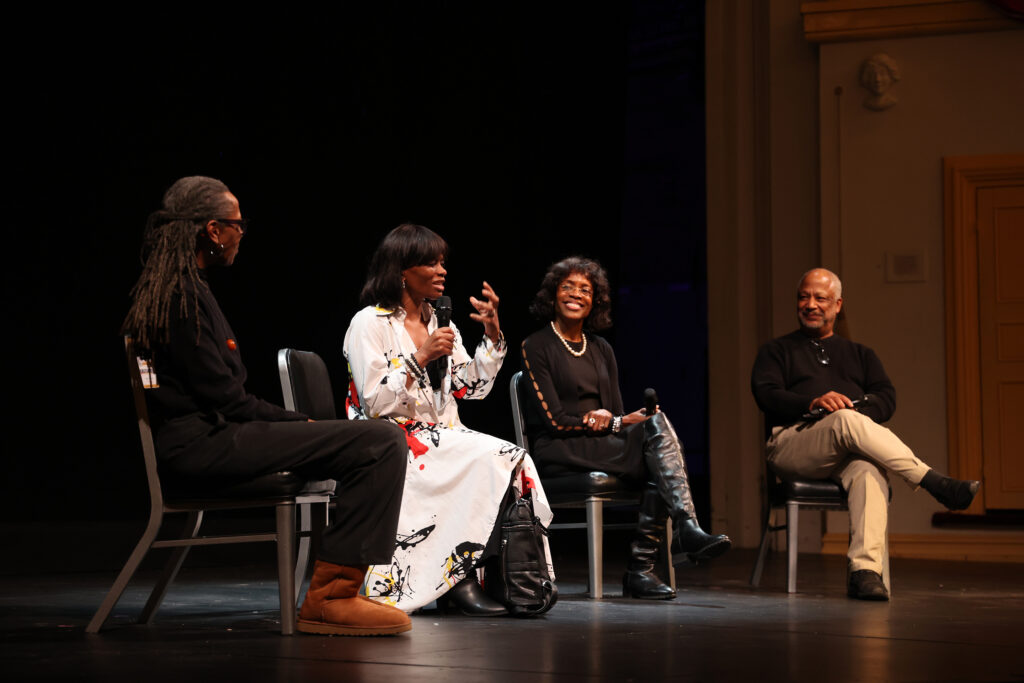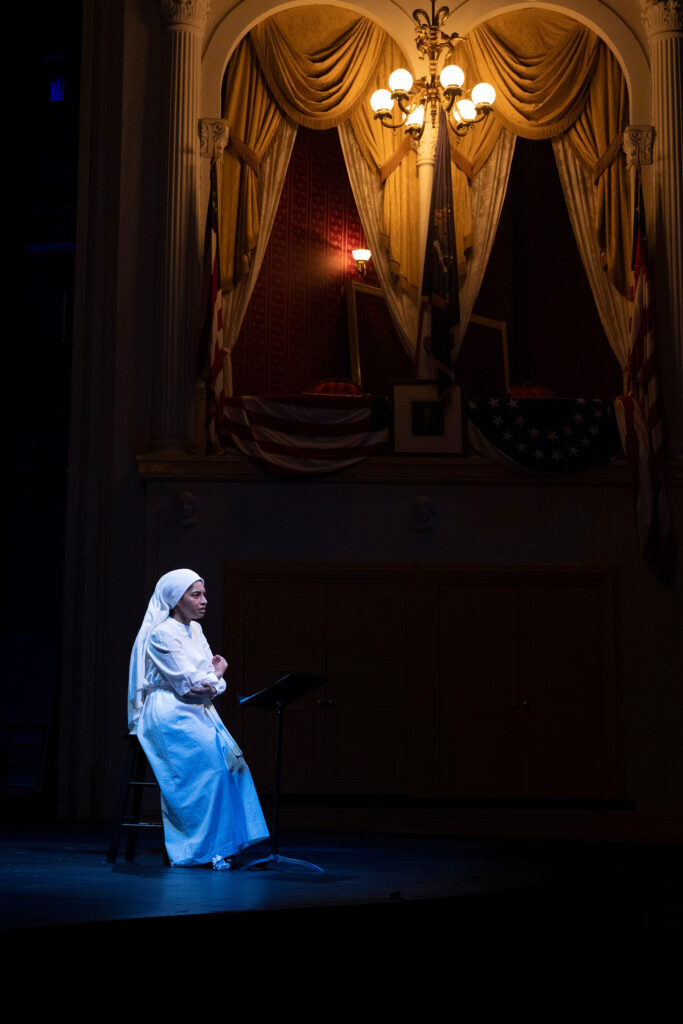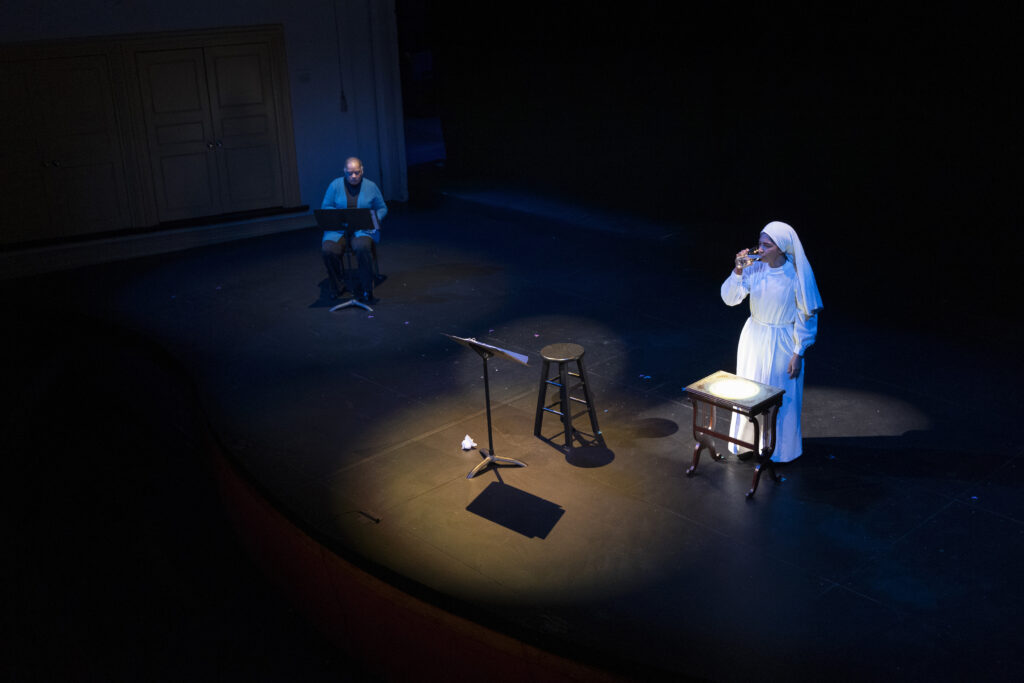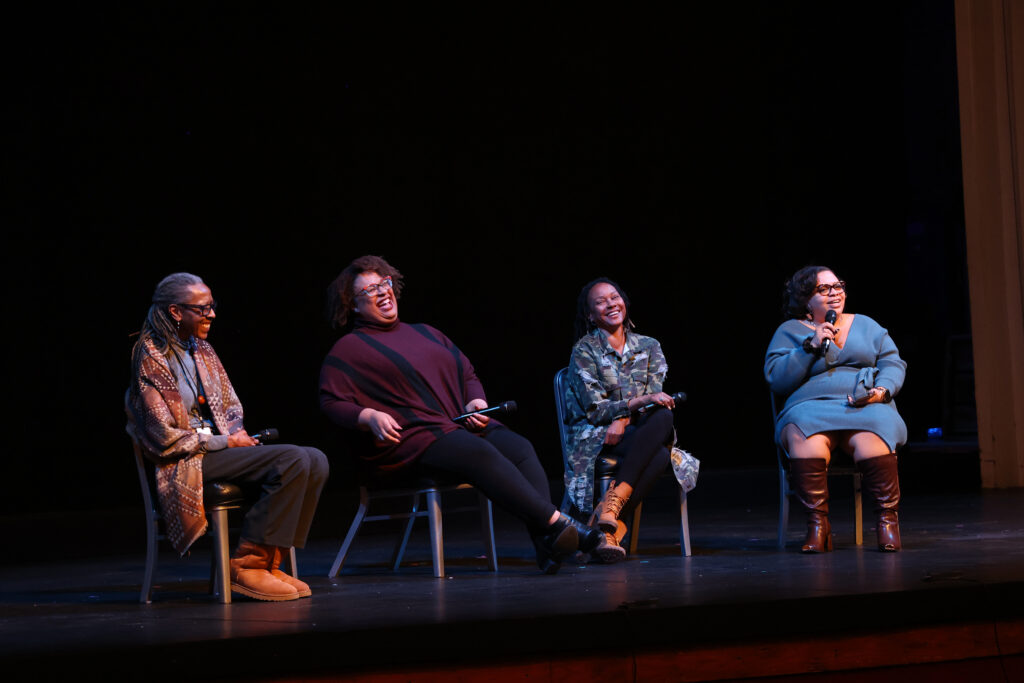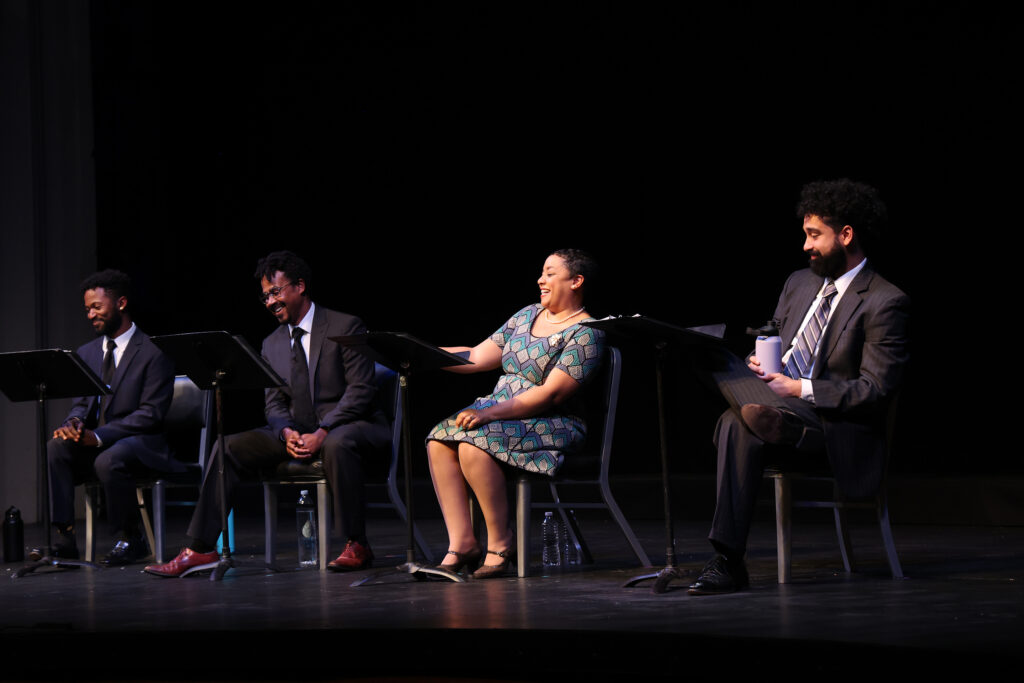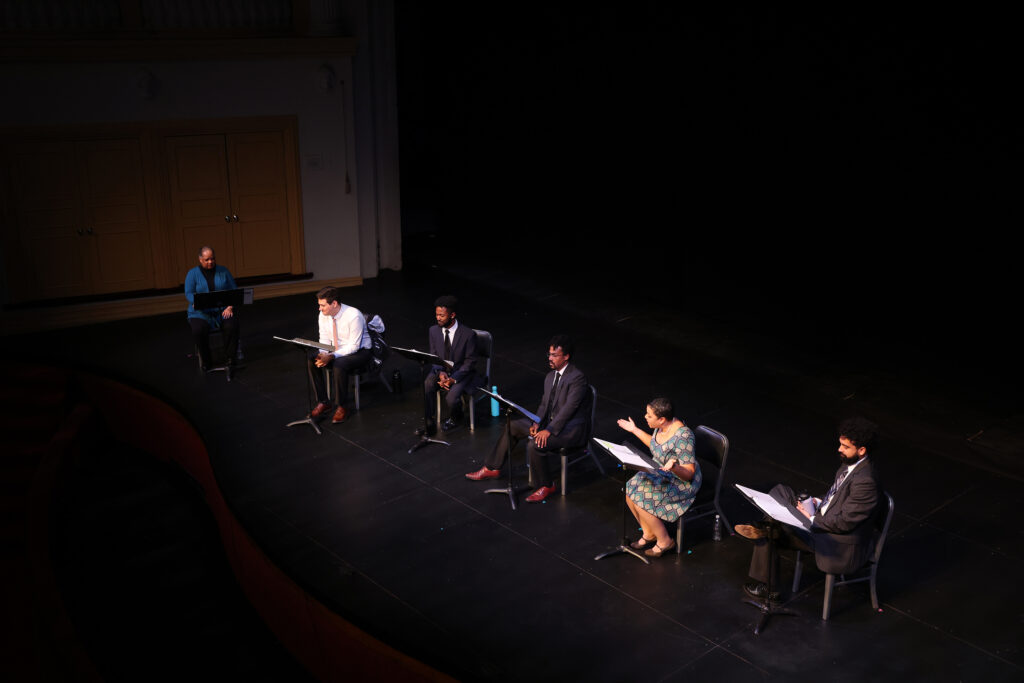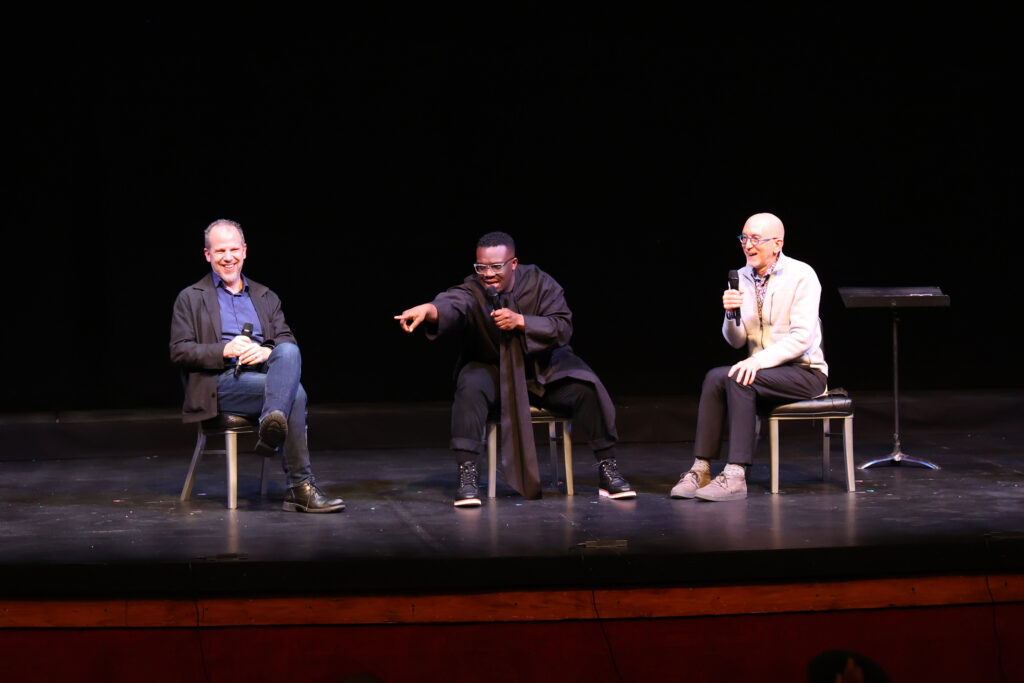
The Ford’s Theatre Legacy Commissions: A First Look – 2024
Experience the power of The Ford’s Theatre Legacy Commissions with a first look at readings of A Designer of Note, A Woman of Style by Charlayne Woodard, SISTER X by Nambi E. Kelley and The American Five by Chess Jakobs.
The Ford’s Theatre Legacy Commissions: A First Look is a free, two-day festival, providing a preview of new plays in development, with opportunities for expanded conversations around the work. This year’s festival marks a follow-through on our commitment to artists, with readings of the remaining works of our inaugural class of commissions. We will also share the first reading from our second cohort. With A First Look, Ford’s gives audiences an unparalleled inside peek at the process and voices that shaped these works.
Readings will include A Designer of Note, A Woman of Style by Charlayne Woodard, directed by Delicia Turner Sonnenberg, about the life of fashion designer Ann Lowe; SISTER X by Nambi E. Kelley, directed by Hana S. Sharif, about a young mother’s quest to share her life’s challenges with Malcolm X; and The American Five by Chess Jakobs, directed by Aaron Posner, which explores present-day biases and racial discord inside a graduate classroom. Learn more about each play below.
Senior Artistic Advisor Sheldon Epps, Director of Artistic Programming José Carrasquillo and The Ford’s Theatre Legacy Commissions Advisor Sydné Mahone lead the initiative.

A Designer of Note, A Woman of Style
By Charlayne Woodard; Directed by Delicia Turner Sonnenberg
Public Reading: January 26, 2024 at 7:30 p.m.
A Designer of Note, A Woman of Style by Charlayne Woodard gives us a window into the life of fashion designer Ann Lowe. Ann Lowe designed dresses for high society women and movie stars before she was commissioned to design Jacqueline Bouvier Kennedy’s wedding dress. Her remarkable artistry set her apart from her male counterparts, but her achievements as a couturier and artist remained unknown for decades despite having stores on the fashion avenues of NYC. In a journey that begins in 1898 in Clayton, Alabama, Charlayne Woodard’s work traces the remarkable life and artistry of a true original American designer.
In Charlayne’s Own Words:
Born in the late 1890s, in the Jim Crow South, Ann Lowe was a trailblazer in fashion design. From 1912 to 1981, Ann Lowe exercised her gift and followed her calling. She secured her place in history designing and creating, not only for herself, but primarily for the wealthy women of elite society who hired her – and who were determined to keep her “their little secret.”
I chose to write a play about this extraordinary woman because I must give credit where credit is due. As a creative, I know what it’s like to follow your dream, in spite of numerous obstacles, foreseen and unforeseen. However, the story of Ann Lowe is a tale of perseverance, creative excellence – never giving in to victimhood. A single mom for most of her life, Ms. Lowe ran over hurdle after hurdle: Racism, sexism, financial instability, health issues. After discovering this “hidden figure,” and researching her life, I am empowered and inspired. I trust others will feel the same. Ann Lowe’s very unique story must no longer be “their little secret.”
Artistic Team
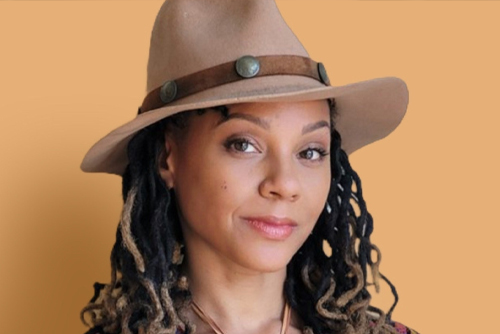
SISTER X
By Nambi E. Kelley; Directed by Hana S. Sharif
Public Reading: January 27, 2024 at 2:30 p.m.
With SISTER X, Nambi E. Kelley has given us the story of Ameilia, a young mother and a social and political activist who seeks a meeting with Malcolm X during a time of social and political upheaval. Seeking guidance and answers, Ameilia reveals the haunting truth of her life. Kelley has written Ameilia’s galvanizing story in verse, thus amplifying the voices of a generation of young women whose unique stories and perspectives have seldom come to light.
In Nambi’s Own Words:
“The role of women in the Nation of Islam, as both a religious and political organization, has been muted. I began to search for who these women were and what their role in the movement was. The information available was scarce, but early on, I hit upon the stories of young women who had been impregnated by leaders of the movement. Excavating their specific stories gave me a focus that began my quest to hear their voices.”
Artistic Team
Cast
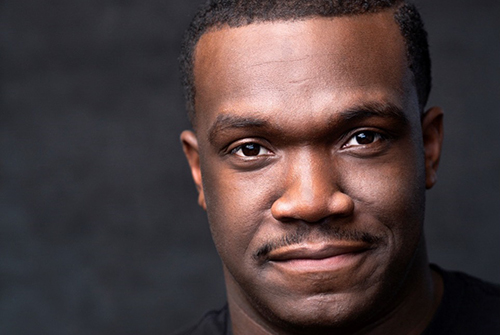
The American Five
By Chess Jakobs; Directed by Aaron Posner
Public Reading: January 27, 2024 at 7:30 p.m.
The American Five offers an incisive look into a single, society-shifting moment in American history while turning our perspective toward a horizon of plurality. This play’s kaleidoscope structure examines the multi-generational relationship of Black and Jewish Americans. When a perspective-challenging professor invokes the “Rules of Engagement” inside the classroom, tensions rise over a discussion about anti-Semitic headlines. A viable framework for understanding present political discord and social paradigms is found in Dr. Martin Luther King, Jr.’s “I Have a Dream” speech.
In Chess’s Own Words:
Our society demands empathy, understanding, and respect across communities, nations and beliefs. While I know from experience that respect is a decision, having genuine empathy and understanding for the masses comes after a deep exploration into one’s biases and a transformational shift in what we know and believe to be true about others. But what does it mean when the history that helps us achieve that understanding often excludes critical moments and people?
It means that productive dialogues about race, society and culture often conclude with many holes that must be filled. It means that people who grow up knowing and believing one thing have a slim chance of being able to grow up to learn something new. It means people like me, who grew up and lived at the intersection of multiple identities, have very few chances to connect dots that may change the way they see themselves and how they advocate for all of the communities they belong to at the same time. It means that historical giants such as Bayard Rustin, Stanley Levison, Clarence Jones and Coretta Scott King are left out of critical retellings of the March on Washington and the “I Have A Dream” speech.
Through this play, I am inquiring into our collective perception of each other, our presumed alignment based on shared background and how identity manifests through us in how we speak, relate, and dream. The questions that rang in my head while crafting this piece, as they have been ringing in me since birth, are the questions I’m seeking to answer: Where do we go when our plurality causes friction in a singular-driven world? How do we retain our individuality when communities are built through homogeneity? What can vulnerability and change do for us when masculinity and tradition are insufficient to remain powerful? Why do race, ethnicity, religion, nationality, ability, sex and sexuality define us? Who is allowed to undefine themselves?

